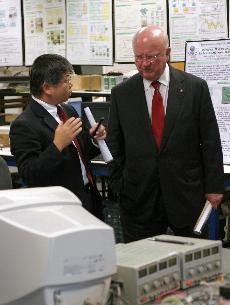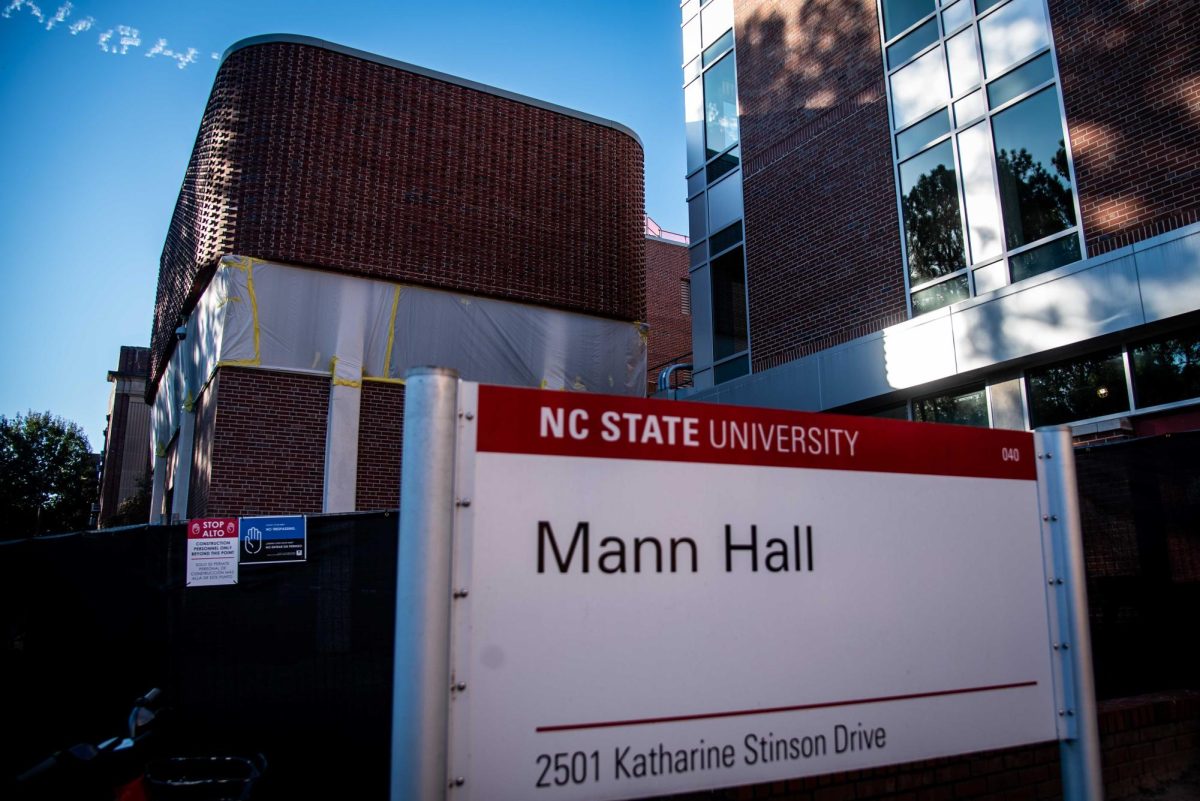Global energy consumption will increase 50 percent by 2030, according to U.S. Department of Energy Secretary Samuel Bodman, who visited the University Tuesday.
Bodman spoke at the College of Management about contemporary energy programs and policies in the United States and toured energy research labs throughout the day.
“We are overly dependant on fossil fuels and foreign oil imports, which there is no future in,” Bodman said at a press conference.
Doug Watkins, sophomore in Lifelong Education, attended Bodman’s speech and said he felt Bodman covered an essential topic.
Because society is moving away from a petroleum-based economy, “these issues and policies should be most important to us,” he said. This is the first time in 50 years that energy is in such high demand that venture capitalists are investing large sums of money in renewable energy sources, he said.
“And they’re not doing it for fun, they’re doing it because its big business,” Bodman said.
Trevor Bullard, freshman in the First Year College, said he was interested in Bodman’s speech because his father invests in ethanol.
“Bodman affirms my belief that he made a good financial decision investing in alternative fuels,” he said.
To help meet this huge demand for energy, the DOE has started programs such as the Presidents Americans Competitiveness Research Initiatives and the Advanced Energy Initiative.
According to Bodman, the DOE will spend millions of dollars on these programs for fusion energy research; material, biological and environmental sciences; and nuclear engineering.
“The U.S. Department of Energy is working to slow the effects of greenhousegas emissions to ensure a future energy supply that is secure, clean andaffordable,” Bodman said.
One of the programs they are researching is the carbon sequestration project, which will store carbon in saline reservoirs and allow us to store carbon dioxide pollution, he said.
According to Bodman, it is the responsibility of the American people to begin slowing the effects of greenhouse gases and global warming.
Bodman said if every American in the U.S. would install one compact fluorescent light in their house or business our carbon emissions would be dramatically reduced. The department has already had huge successes with the energy star program and this is only the beginning, he said.
“We intend to begin setting standards for appliance efficiency,” Bodman said.
When addressing the issue of nuclear energy, he said no utility has constructed a nuclear power plant in 30 years.
“This is going to have to change to meet the huge energy demands of thefuture. We need to have a diversity of energy sources and suppliers totake advantage of market forces,” he said. “The US Department of Energy has two upcoming build proposals and 17 companies considering developing 32reactors in the future.”
According to Bodman, the DOE will push for nuclear power initiatives that will allow private and public utilities to obtain construction and operating licenses by 2010.
Another means of nuclear promotion executed by the DOE are tax credits, insurance and loan guarantees.
“We are doing everything in our power to promote nuclear energy,” Bodman said.
According to Bodman, students have a huge impact on our country’s energy situation.
“Students should pressure their representatives for energy conservation,” he said.





